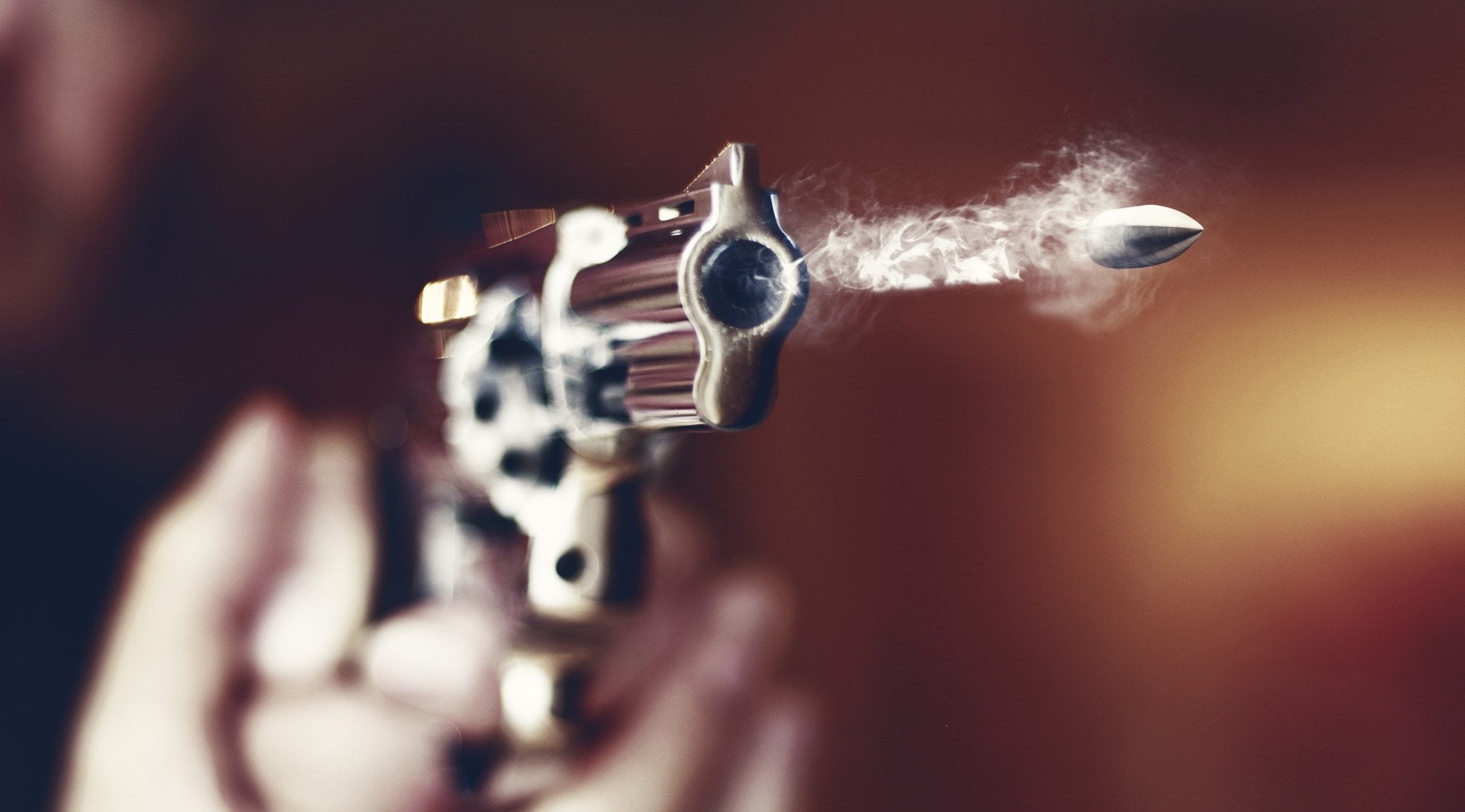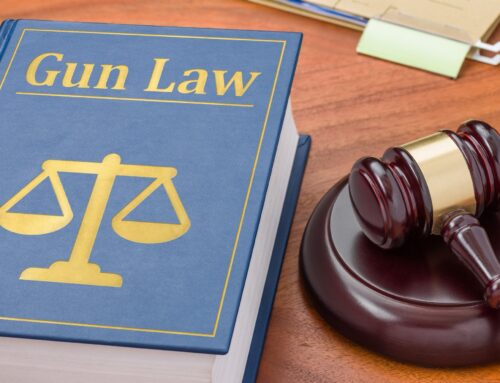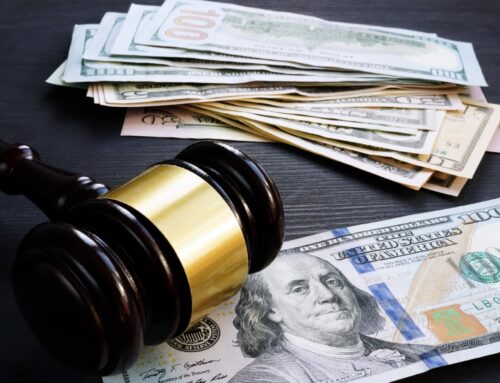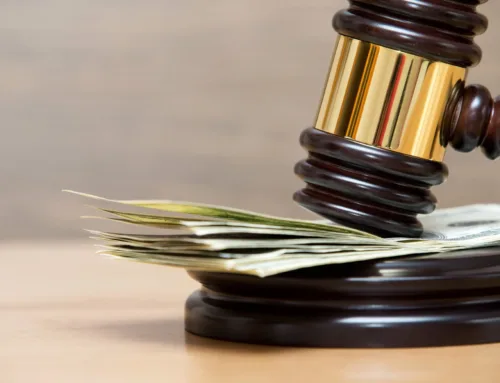Were you recently convicted of a felony in Florida?
I represent four main types of criminal defense cases. These include felonies, misdemeanors, traffic infractions, and restraining orders. A felony can be a number of crimes, from burglary and grand theft to the possession of uncontrolled substances.
If the state classifies you as a felon, there are different rules and restrictions that you’ll need to follow. These affect nearly every aspect of your life, including your right to own and use a firearm.
Are you a felon in possession of a firearm? If so, you could be violating the law without even knowing it. Today, we’re breaking down if this action is legal, and how I can help you navigate a charge.
Understanding Your Felony Charge
Under Florida Statute §775.08, a felony is any type of criminal defense that can be legally punished in one of these two ways:
- Imprisonment
- Death
Broadly speaking, a felony is a more serious crime than a misdemeanor. As such, it also carries a harsher punishment. While the specific penalties you’ll face depend on the nature and severity of the crime, you can expect to serve your incarceration sentence in state prison for at least one year.
Forcible vs. Non-Violent Felonies
When determining felony punishments, the court will first consider whether the crime was forcible or non-violent. Put simply, a forcible felony is one that involves force or violence against another person. Even threatening to use violence can qualify your case as forcible.
Examples of forcible felonies include:
- Sexual battery
- Child abuse
- Murder
- Burglary
- Robbery
- Carjacking
- Arson
- Aggravated stalking
On the other hand, a non-violent felony is a serious crime that doesn’t involve force or violence. Examples include:
- Theft
- Fraud
- Possession of some controlled substances
Regardless of whether your crime is classified as forcible or non-violent, being convicted of a felony in Florida is a serious offense. If you’re facing this charge, it’s important to hire a criminal defense attorney as soon as possible to help you prepare a legal strategy and navigate your next steps.
Five Degrees of Felonies
Depending on the type of crime you commit, the state will classify your felony into one of five degrees. In descending order of severity, these include:
- Capital felony
- Life felony
- First-degree felony
- Second-degree felony
- Third-degree felony
A capital felony is the most serious type of crime you can commit in Florida. Premeditated murder, sexual battery, and robbery with a firearm are all considered capital charges. If you’re convicted of this offense you could face life in prison without parole, or even the death penalty.
Each degree has its own terms and restrictions. A third-degree felony is the most common type of felony in Florida. While it carries the least severe punishment, the consequences can still be detrimental.
Examples of third-degree felonies include:
- Aggravated assault
- Carrying a concealed weapon improperly
- Employee theft
- Possession of certain types of drugs
If you face this type of felony charge, you could face up to five years in prison, as well as a fine of up to $5,000.
Determining Felony Degrees
In addition to the nature of the crime, state courts will also take several other factors into account when deciding how to classify a felony. These include:
- The age of the victim
- The nature of the crime
- The severity of the crime
- The felon’s prior convictions
- Forcible vs. non-forcible nature
All of these factors combined can have a direct influence on how the crime is categorized. For instance, consider a burglary charge. If the alleged offender simply burglarized a building, that would normally be considered a second-degree felony in Florida.
However, what if the burglar was carrying a gun? Then, what if they physically assaulted the person inside the building? In that case, violence comes into play, changing the nature of the crime from non-forcible to forcible.
This can be enough to increase the charge from a second-degree to a first-degree felony.
Statute of Limitations
Under Florida law, there is a set timeline that victims must follow if they want to pursue legal action for a felony crime committed against them. However, this doesn’t apply to capital and life felonies, or any kind of felony that resulted in the death of the victim.
In those cases, there isn’t a statute of limitations, and plaintiffs can pursue the charge at any time. For all other felonies, the time limits are as follows:
- 1st-degree felonies: Four years
- 2nd-degree felonies: Three years
- 3rd-degree felonies: Three years
In addition, some felonies carry longer terms simply because the crime is more serious and the consequences are more detrimental. These include:
- Felony that harmed a person and involved the use of a destructive device: 10 years
- Medicaid fraud: Five years
- Insurance fraud: Five years
- Elderly abuse or neglect: Five years
An experienced lawyer can help you understand the details surrounding your felony charge, including whether or not the statute of limitations was correctly followed. These details can help build and strengthen your case.
Can a Felon Have a Firearm?
Serving a felony charge can take years away from your life. It can also be one of the most expensive mistakes you ever make. However, once you’ve served your sentence and completed all of your requirements, you may think you can resume life as normal.
Unfortunately, this isn’t the case.
Even after your prison time is up, you’re still unable to participate in many activities that are available to non-felons. These restrictions can vary from state to state. In Florida, convicted felons are prohibited from engaging in these civil rights:
- Voting in an election
- Serving on a jury
- Running for or holding public office
- Entering certain foreign countries
- Obtaining and renewing certain professional licenses (e.g. real estate, insurance)
- Owning and possessing a firearm
Once you’re no longer under supervision, you may be able to reclaim some of those rights. To do so, you’ll complete a process called the Restoration of Civil Rights. To take this step, you cannot have any outstanding criminal charges against you, nor can you still owe any monetary obligations as a result of your felony conviction.
Note that even if you’re not legally barred from performing a certain action (such as obtaining an occupational license), you could still be denied the opportunity. Companies who refuse to hire or engage with felons may do so by claiming a lack of good moral character.
The only exception to this rule? In most cases, you cannot reclaim your right to own and possess a firearm. Let’s take a closer look at why this is the case.
State and Federal Law
There are only two entities that can restrict a felon’s authority to own or possess a firearm following their conviction. These include:
- The State of Florida
- The United States Treasury (Federal law)
While the Second Amendment to the U.S. Constitution does entitle all citizens to the right to bear arms, convicted felons are not privy to those rights.
Let’s take a closer look at the terms that each entity has set for this charge.
The State of Florida
Florida Statute §790.23 mandates that felons cannot possess or control any of the following:
- Firearms
- Ammunition
- Electric weapons
- Gunpowder
- Bullets
- Metallic knuckles
- Knives
- Dirks
- Batons
Convicted felons are also prohibited from carrying any concealed weapons. This includes devices such as tear gas guns. It also applies to other types of chemical weapons.
In very limited cases, Florida’s Clemency Review Commission may reinstate a felon’s right to own and possess a firearm. However, this is only possible once you’ve completed your requisite prison time and complied with all of the terms of your sentence. Even then, you’ll have to wait at least eight years after being released from court-mandated supervision.
To request this consideration, you’ll need to complete and submit an application to the State of Florida, Office of Executive Clemency, officially requesting a restoration of your rights to own and possess a firearm.
Note that this restoration is not offered to anyone convicted of a federal felony in a federal court. In that case, you forfeit your legal right to possess a firearm permanently unless authorities deem otherwise.
Federal Law
Under federal law, anyone with a former felony conviction cannot possess firearms, explosives, or any type of ammunition. This also applies to anyone who was discharged from the U.S. Armed Forces under dishonorable conditions.
Even if the State of Florida approves your application and restores your civil rights and specific authorities, you still have one more step to complete.
Under the current federal law, you’re also required to submit a separate application to Federal authorities. Only when both applications are complete, submitted, and accepted can you be relieved of any disabilities inflicted upon you under the Federal Firearm Act.
Consequences for Violations
While it might seem possible, trying to gain access to a gun illegally isn’t a smart move. If you violate the terms of your conviction, you could face penalties from the State of Florida and the Federal court. Here’s a quick breakdown.
Florida Charges
The Sunshine State has its own laws to punish felons who possess firearms illegally. Here, you could face a second-degree felony charge, which carries an imprisonment term of three to 15 years and a fine of up to $10,000. The minimum mandatory sentence for this specific crime is three years.
If the court determines that you were accessing the gun to benefit, promote, or support a criminal gang, the conviction can be upgraded to a first-degree felony. For this type of felony, the maximum imprisonment term is 30 years and the maximum fine is $10,000.
Federal Law
In addition to the State of Florida, you’ll also face penalties from the federal courts if you’re found in possession of a firearm or ammunition. Under 18 U.S. Code §922, the penalty for this offense is 10 years in a federal prison and/or a $250,000 fine. If you’ve had at least three prior convictions for a violent felony or been found guilty of a serious drug offense, you’ll be required to serve a minimum of 15 years in prison.
Federal legislation defines a felon as anyone who’s been convicted in any court for any crime, as long as that crime is punishable by more than one year in prison. Along with felons, anyone convicted of domestic violence is also prohibited from owning or using a gun.
Additional Sentencing
Moreover, violating federal or state law also means violating other terms of your conviction, including:
- Probation
- Parole
- Supervised release
These violations can carry their own fines and terms of imprisonment, which could expand your sentence. If found guilty, it could also set your progress back exponentially. Under Title 18, United States Code, Section 3565(b), the court can revoke probation and supervision terms if a felon (or misdemeanant) is found in possession of a firearm.
Then, they can invoke another sentence that extends beyond the expiration of your original probation term.
Actual vs. Constructive Possession
When determining how to charge and convict a felon found in possession of a firearm, the court will consider whether the possession was active or constructive.
Actual Possession
Actual possession means that you were found physically handling or controlling the firearm. This can include holding the gun in your hand or carrying it on your person.
Constructive Possession
Constructive possession means that the firearm is located in a place over which you have control, such as your home or workplace. This includes any location where you can reasonably be expected to know where the gun is and how to access it. It can also include your vehicle.
For instance, if you’re found in the driver’s seat with a gun sticking out of the passenger’s seat, the court may reasonably assume that you know about the gun’s placement and you could exercise control over it.
Are You a Felon in Possession of a Firearm in Florida?
We don’t have to tell you that a felony charge is incredibly serious. If you’re facing one, it’s critical to comply with all of the terms and restrictions of your sentence. This includes forfeiting your right to own and use a gun.
If you are a felon in possession of a firearm, then contact me immediately. I will develop a strategy for your case and improve the likelihood of a successful outcome. To learn more, schedule a free consultation today.







